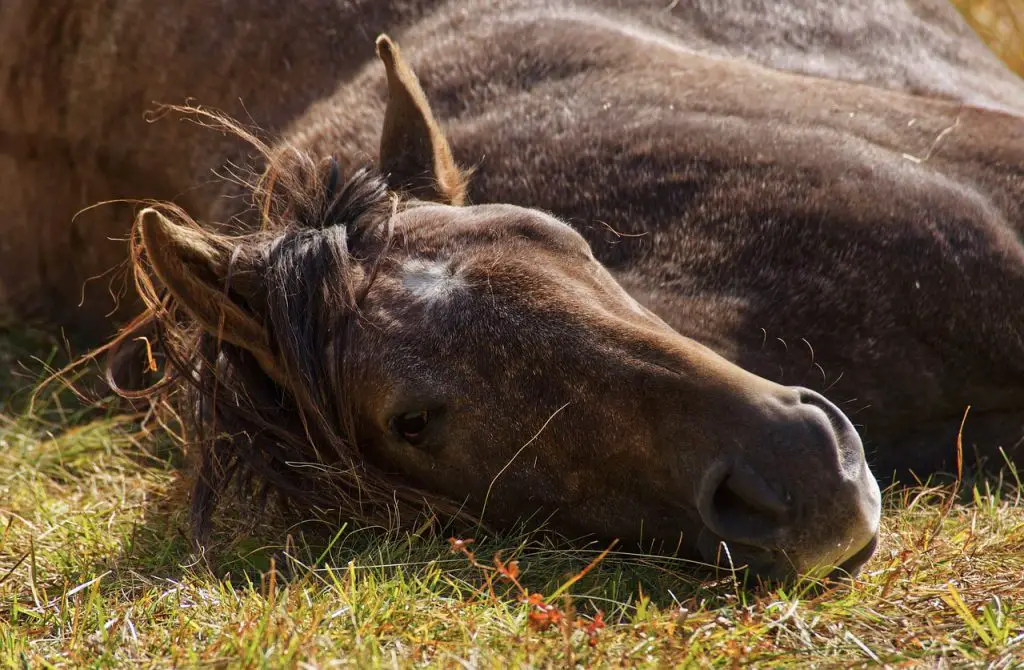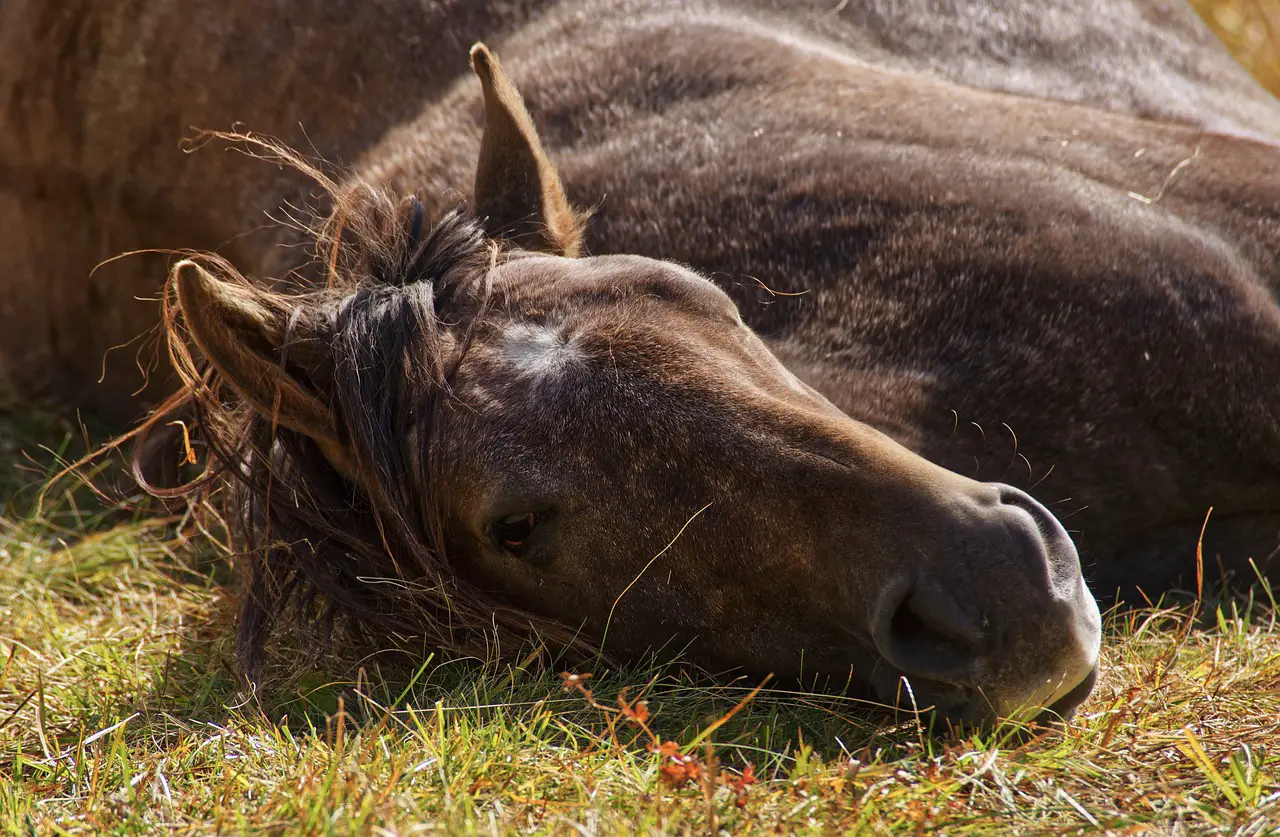Last Updated on February 21, 2022 by Allison Price
All animals, including horses, are at greater risk from snakebite due to the long summer heat. The pit vipers are the most dangerous snakes in America. They include many species of copperheads, water moccasins, and rattlesnakes. Because of their small mouths, coral snakes, another poisonous serpent found in the U.S. pose no risk to horses.
Pit vipers were named for the heat-detecting pits on their heads that help them locate prey. The pit vipers are distinguished from other snakes by their triangular-shaped heads and narrow neck.
Copperheads, cottonmouths and timber rattlesnakes are the most common poisonous snakes found in Kentucky. There are also reports of Eastern Diamondback rattlesnakes. The risk of severe, fatal poisoning (poisoning by venomous bites or stings) is greatest with Diamondback rattlers. It’s less with water moccasins and lower with copperheads.

Horses are most likely to be bitten by a snake if they come across one in their pasture or along the trail. Horses that step on snakes may get severe bites. The snake will release all its venom in one attack as it dies. Although the components of snake venom are different for each species, most contain substances that can cause tissue damage, blood clotting problems, and digestion. Neurotoxins are also found in some snake venom. There are many factors that can influence the severity of a bite, including snake species, size and age, as well as number of bites. Some bites are considered “dry bites”, meaning that little or no venom is administered.
Victim factors also have an impact on how severe a bite will be. These factors include the size, age, medical conditions and drugs that the animal may be taking, as well as the location of the bite. While a single snakebite in a horse may not require treatment, another snakebite in a horse with a different snake, horse or circumstances could be more serious and even fatal.
Horses can experience symptoms of snakebite that vary in severity, but they generally have pain and swelling around the bite site. Sometimes bite wounds may not be obvious. Many bites from copperheads and dry bites with very little venom are not dangerous. Severe bites by more dangerous snake species, or higher doses of venom, can cause severe pain and swelling, hemorhage, cardiac arrhythmias and shock, collapse and, in rare cases, death. Paralysis can result from neurotoxic venoms. Horses can get paralysis from being bitten by neurotoxic venoms. The signs of envenomation may appear within minutes or take several hours to develop depending on how the bite site was chosen, the dose of venom injected and the snake species.
If your horse has been bitten by a poisonous snake, you should immediately seek veterinary attention. For venomous snakebite, there have not been any first-aid procedures that owners of horses in the field have shown to be especially helpful. Folk remedies and anecdotal remedies can do more harm than good. In pig models of snakebite, it has been proven that suction devices for venom removal are not beneficial. It is important to calm the horse and get immediate medical attention.
The severity of the bite will determine the type and extent of veterinary treatment. It may include fluid therapy, pain medication, shock, fluid therapy and wound treatment. In cases of severe envenomation, antivenin may be particularly helpful. It can reduce tissue damage and speed up recovery times. The dose of antivenin depends on the amount of venom that has been injected and not the size of the horse. Therefore, even one vial can be used to counteract the effects of venom toxins. Many horses can experience cardiac arrhythmias and may need treatment. Horses suffering from severe nasal passage swelling may need to be treated to preserve their airway and provide nutritional support to help them eat and drink.
Horses can still suffer from the more immediate effects of a snakebite. However, complications like chronic heart disease, kidney damage and hemolytic anemia, which is a condition in which the body’s immune systems attack and kill its own red blood cells, may occur. Horses are more likely to experience cardiac failure than any other species, and it can happen in weeks or months following a bite. After a snakebite, horses should be checked for any signs of cardiac disease.
Although a vaccine for horses is now available to prevent snakebite complications, its effectiveness is still not well documented. For more information about snakebite, consult your veterinarian or a toxicologist.



